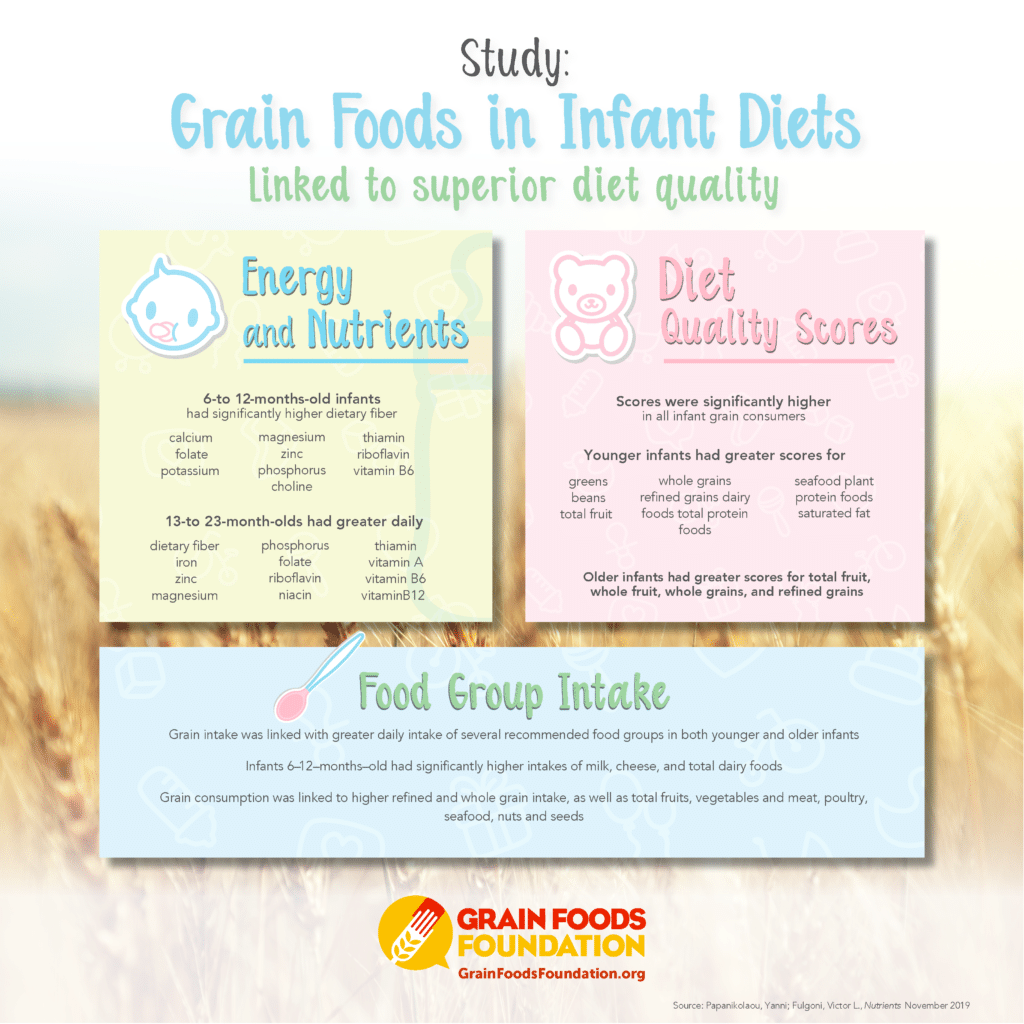A new study recently published in Nutrients highlights the importance of grains as part of a healthy infant diet – and the potential risks of excluding them. The study found grain consumption was generally associated with higher nutrient intakes, better diet quality scores and broader food group intake.
Specifically:
- Energy and Nutrients
- 6- to 12-months-old infants had significantly higher dietary fiber, calcium, folate, potassium, magnesium, zinc, phosphorus, choline, thiamin, riboflavin, and vitamin B6 compared to non-consumers.
- 13- to 23-month-olds had greater daily dietary fiber, iron, zinc, magnesium, phosphorus, folate, riboflavin, niacin, thiamin, vitamin A, vitamin B6, and vitamin B12 relative to non-consumers.
- Diet Quality Scores
- Scores were significantly higher in all infant grain consumers examined in comparison to non-consumers.
- Younger grain-consuming infants typically ate more greens and beans, total fruit, whole grains, refined grains, dairy foods, total protein foods, seafood and plant protein foods, and saturated fat in comparison to non-consumers of grains.
- Older infants consuming grains typically ate more total fruit, whole fruit, whole grains, and refined grains relative to non-consumers.
- Food Group Intake
- Grain intake was linked with greater daily intake of several recommended food groups in both younger and older infants versus non-consumption of grains.
- Infants 6–12-months-old had significantly higher intakes of milk, cheese, and total dairy foods compared to grain non-consumers.
- Infant grain consumption was linked to higher refined and whole grain intake, as well as greater intake in terms of total fruits, total vegetables and total meat, poultry, seafood, nuts and seeds compared to non-consumers of grains.

